Arthur Rylah Institute, Seminar Summaries provide a brief overview of presentations made at scheduled seminar sessions at ARI on Mondays 1-2 pm. These seminars are free and also available via live online webinar – registration required.
Summaries from recent ARI seminars
See the most recent 2024 ARI Seminars on YouTube from the ARI play list.
ARI Seminars prior to 2024
Strategic Adaptive Management
Professor Richard Kingsford (University of New South Wales)
7 August 2023
The hidden role of botanists
- Dr. Steve Sinclair (ARI)
- Dr. Andre Messina (RBGV)
1 May 2023
Forgotten critters and recovered histories
- Dr. Nick Porch (Deakin University) - Terrestrial invertebrates – invaluable in evidence-based conservation
- Peter Menkhorst (ARI) - Lost worlds – Journeying back in time to help present-day conservation
28 March 2023
Fish conservation and engagement
- Dr. Andy Danylchuk (UMass) - Beyond Engagement: Leveraging Recreational Angler Passions for Conservation Actions
- Dr. Jarod Lyon (ARI) - 10 in TEN – A plan for restocking and recovery of 10 threatened Species in TEN years through Victoria’s ‘Conservation Hatchery’ program
13 February 2023
Animal Behaviour in Conservation
- Dr Eduardo Fernandez (University of Adelaide) - Animal Behaviour: Training and Managing Species for Conservation
- Nick Rutter (Zoos Victoria) - What's New at the Zoo?: Training Detection Dogs for Conservation Application
21 November 2022
Evidence in Conservation
- Dr Jessica Walsh (Monash University) - Rapidly assessing the conservation evidence for threatened ecosystems
- Dr Tatsuya Amano (University of Queensland) - Why language matters in conservation
31 October 2022
Victoria Nature Festival - Biodiversity trends
- Dr Geoff Heard (UQ) - Australia’s Threatened Species Index: Infrastructure for long-term monitoring of species trends
- Justin Cally (ARI) - Koala distribution and abundance in East Gippsland
19 September 2022
National Science Week Seminar
- Dr Dave Ramsey (ARI) - Estimating the efficacy of aerial shooting operations to reduce deer abundance
- Dr Matt Bruce (ARI) - Prioritising knowledge gaps for better research investment
15 August 2022
NAIDOC Week Panel - Get up, Stand up, Show up - what this means for
Country, Culture and environmental management
- Rhianna Kerr - Dja Dja Wurrung woman, First Peoples Self-determination Policy Officer at DELWP
- Teagan Goolmeer - Arabunna woman, Melbourne University PhD Candidate & Project Officer Department of Communities WA
- Krystal De Napoli - Gomeroi woman, astrophysicist student at Monash University & host of Indigenuity for Triple R
- Facilitated by Maddi Miller - Darug woman, archaeologist and joint Research Fellow at the Arthur Rylah Institute & Melbourne University
4 July 2022
World Environment Day
- Dr Nyil Khwaja (ARI) - Ecology and life-history of social birds
- Dr Henry Wootton (ARI) - Can fish populations respond to fishing, warming temperature and altered hydrology?
6 June 2022
Genetic Rescue
- Dr Sasha Pavlova (Monash University) - Genetic management of wildlife in a changing world
- Dr Zeb Tonkin (ARI) - Incorporating genetic management into threatened species recovery: A case study of Macquarie perch in the Ovens River
16 May 2022
People and Nature in Cities
- Dr Kate Lee (ARI) - People and Nature in Cities
- Rose Macaulay (University of Melbourne) - Sensory and cognitive connections with nature: exploring urban engagement with nature
4th April 2022
Genetics in Conservation
- Dr Lauren White (ARI) - Genetic assessments of inbreeding in the wild
- Dr Tiffany Kosch (University of Melbourne) - Genetic interventions to restore frogs threatened by chytridiomycosis
21 February 2022
Valuing Nature - evidence and urban species
- Dr Lisa de Kleyn (RMIT) - Navigating stories, meanings and emotions as evidence: relationships with a native forest
- Dr Kylie Soanes (University of Melbourne) - Stuck in the city with you: conserving species on our doorstep
15 November 2021
eDNA technology and population genetics of Murray cod
- Dr James Shelley (ARI) - What can eDNA technology tell conservation researchers?
- James O'Dwyer (La Trobe University & ARI) - Using population genetics to understand life-history traits within Murray cod
25 October 2021
Bushfire recovery surveys for plants and wildlife
- Overview of the reconnaissance surveys program - Tim O'Brien (Bushfire survey coordinator)
- Threatened flora species searches & rainforest surveys - Arn Tolsma
- Aquatic surveys and rescues - Dr Tarmo Raadik
- Glider and owl surveys - Dr Jemma Cripps
13 September 2021
On the tail of the eel - creatures of mystery' - Uncle Denis Rose from the Gunditj MirringTraditional Owner Aboriginal Corporation and Dr Wayne Koster (ARI) -
5 July 2021 (NAIDOC week)
The art of making run-down ecosystems new again - Dr Ashley Sparrow
7 June 2021
Measuring biodiversity and ecological integrity in NSW: A partnership between government and researchers - Dr David Nipperess
27 April 2021
Australia’s mass fish kills as a crisis of modern water - Prof. Lesley Head
22 March 2021
-
Nature connectedness: exploring integrated ArtScience experiences through head, heart, and hand - Christina Renowden
-
Exploring human attitudes and behaviours to improve conservation outcomes - Dr Lily van Eeden
22 February 2021
Fern Hames (ARI, Communication and Collaboration) -What about people? The shifting role of people in our ecological equations
November 9 2020
John Koehn (ARI, Population Processes) -Fisheries, fish, aquatic ecology: progress over the past 40 years
October 19 2020
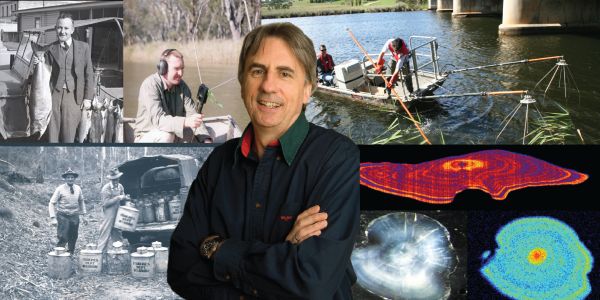
Lindy Lumsden (ARI, Wildlife Ecology) - Marvellous, mysterious mammals: ARI's legacy in mammal research over recent decades
September 21 2020
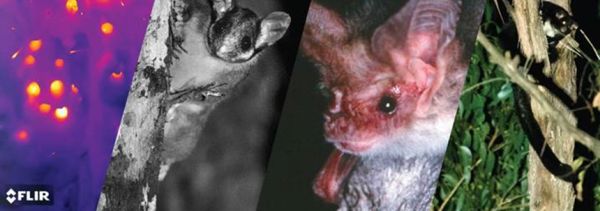
Laying the foundations: wildlife research at ARI, 1970-1995 - Peter Menkhorst (ARI, Waterbirds and Wetlands)
31 August 2020
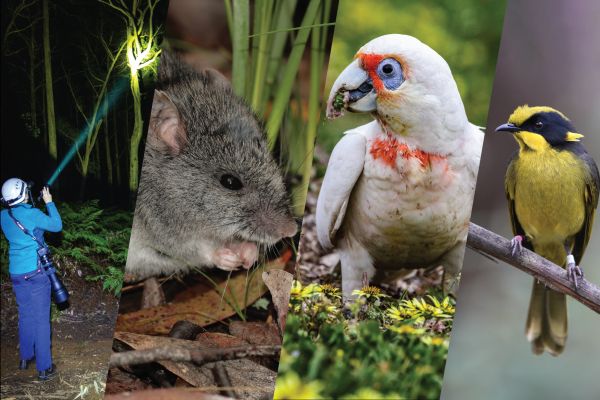
ARI's bright future - science, policy and collaboration - Josephine MacHunter, Tracey Regan, Annique Harris, Khorloo Batpurev (ARI)
17 August 2020
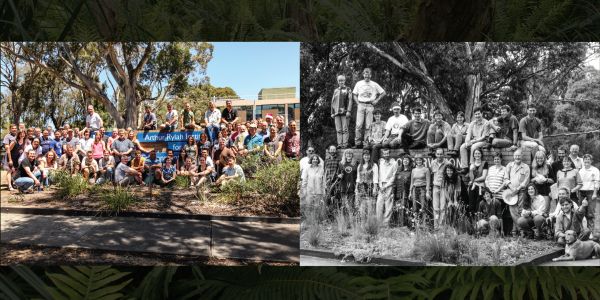
Nature conservation in Victoria 1969-2020 - an abridged and idiosyncratic rendering - Matt White (ARI, Ecological Analysis and Synthesis)
27 July 2020
Arthur Rylah Institute Seminar - celebrating 50 years of ARI science - Dr Kim Lowe, Director, ARI.
15 June 2020
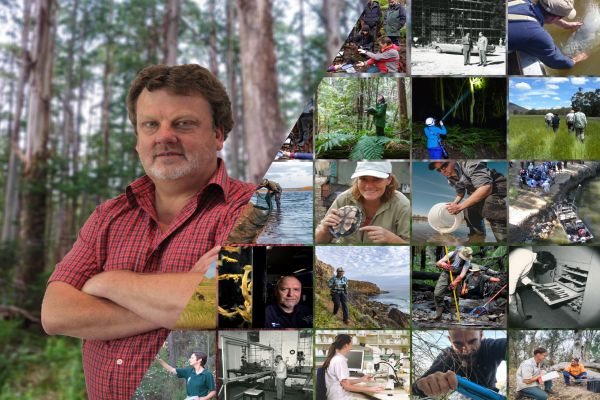
Who needs to do what differently: why behavioural science matters in biodiversity conservation - Melissa Hatty - Doctoral Researcher, Monash University
27 April 2020
ARI Seminar Presentation Slides
Conservation in the Kimberley - a perspective from working within an NGO - Richard Falkner (ARI, Communication and Collaboration)
24 February 2020 Video link
Trees for fish: Angler Riparian Partnerships Program (2nd-half) - Renae Ayres (ARI, Population Processes)
24 February 2020 Video link
Antarctica Part II: Lessons in Leadership - Fern Hames (ARI)
18 December 2019 Video link
Restoring fish populations in the Murray-Darling Basin: future directions and perspectives - Ivor Stuart (ARI, Population Processes)
18 November 2019 - Video Link
FAME decision tools for biodiversity - a breakthrough in fire management - Josephine MacHunter and Nevil Amos (ARI, Fire Ecology)
18 November 2019 Video link
How hardy are Hardyheads? Salinity and environmental water - Dan Stoessel (ARI)
7 October 2019 Video link
What’s driving reptile survival in grasslands? - Michael Scroggie (ARI)
7 October 2019 Video link
Genetic rescue of an endangered grassland daisy Rutidosis leptorrhynchoides - Yael Rodger (Monash University)
9 September 2019 Video link
How well do ex situ plant collections capture the genetic diversity of their founders - Emma Barnett (Monash University)
9 September 2019 Video link
Prioritising human behaviour change for conservation in Victoria - Matthew Selinske (RMIT University)
19 August 2019 Video link
How is linear infrastructure (road and rail) impacting wildlife? - Manisha Bhardwaj (Swedish University of Agricultural Sciences)
12 August 2019 Video link
‘Cultural burning’ - Uncle Dav Wandin (Wurrunjeri Woi Wurrung Elder)
8 July 2019 Video link
Maternal sex allocation: tales of the controlling mother, the changing climate and rainbow coloured sperm - Dr Amy Edwards.
29 April 2019
Amy shared some insights into the influences of sex ratio bias, especially in Tammar wallabies.
- Maternal effects can pre-program offspring for certain environments. When the environment which offspring are exposed to differs to the mothers, they may not be physiologically adapted. This can impact the ability to produce offspring at the expected 50:50 ratio, or in line with sex allocation theory. But restoring the environment solves this issue! This might have interesting implications for captive breeding programs.
- Sperm sex ratios are rarely 50:50 as predicted by meiosis. It appears that males who mate more are attempting to invest in sons – in line with theory that states 'sexy fathers produce sexy sons'.
- While the sperm sex ratio is Y-chromosome biased and its offspring is male biased, the apparent weaning sex ratio is strongly female biased. This suggests that birth sex ratios might be influenced by sperm sex ratios, but that this bias is not in line with maternal interests/ability to invest. Mothers are “losing” sons more readily than daughters.
For more information: A.Edwards@latrobe.edu.au
The Echidna Phallus: A Four-Pronged Approach - Caleb Mcelrea
29 April 2019
Caleb took us on quite a unique journey through the echidna’s bizarre (to us) reproductive system. Echidna reproduction has been barely studied; Caleb’s research discovered that:
- Semen is transported through a single urethra before it splits into two in the final quarter of the phallus
- Each branch splits again (total of four exits) before terminating into a radiation of smaller vessels called 'epithelial tendrils', that give a 'showerhead-like' appearance
- The echidna phallus appears to be a midpoint between the ancestral hemipenes of snakes and lizards (each of which have two exits) and the single phallus in mammals.
For more information: caleb.mcelrea@uq.net.au
Conservation benefits of managing island pests - Lachlan Francis
18 February 2019
Lachlan evaluated the consequences of cat management on Bruny Island, Tasmania. Expert opinions informed population models to understand how native species (plovers, shearwaters, pardalote, penguins and quolls) would be impacted by cat control. Field research showed that cat management would not change the rat population on the island. The eradication of cats poses a complex, high risk and expensive option in the Bruny Island context. In the context of investment to return, there are other islands where cat control benefits are similar but the risk and costs are expected to be lower. Lachlan also shared his experience working on Macquarie Island.
For more information, contact: Lachlan Francis
Flying-foxes in Victoria: Past, Present and Future - Rodney van der Ree (Urban Ecologist, Melbourne University)
10th December 2018
Rodney delivered an engaging summary of the Grey Headed Flying Fox's (GHFF) history in Victoria which has expanded from a single permanent colony in Mallacoota in 1986 to more than 10 colonies across the state today.
Rod spoke of:
- His experience in 'herding' the flying foxes out of the Royal Botanical gardens in 2003 to Yarra Bend park over 6 months.
- The natural fluctuations and movement of the GHFF populations across Eastern Australia
- Public tolerance of GHFF in low numbers but at higher numbers there is increasing conflict
- A possible future may be ~300,000 GHFF in Victoria in a big year (~50% of the national population)
How many carp are there in Australia? - Jarod Lyon - ARI, DELWP
3rd December 2018
Jarod presented ARI’s work in estimating the biomass of carp for Australia, which is an important figure for the National Carp Control Plan.
Jarod highlighted the complexities in estimating how many carp are in each type of aquatic habitat (rivers, lakes, waterholes, estuaries, wetlands, etc.).
- Decades of catch per unit effort exist but cannot be directly used to estimate total abundance (and therefore total biomass as a derivative) for Australia.
- Field data was collected from across Australia to convert catch per unit effort into abundance for each aquatic habitat type. Using this conversion factor and habitat utilisation data, a biomass for carp was able to be estimated.
- The final results will be announced in 2019 (and yes; preliminary estimates do involve the analogy of distances to the moon).
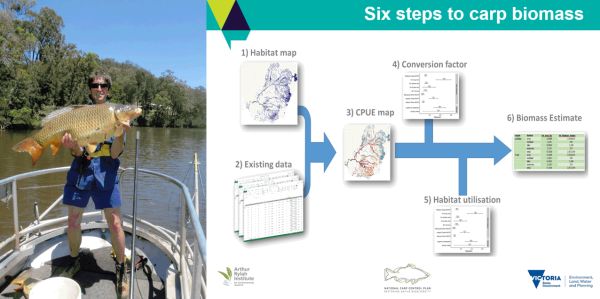
Flagship waterways: long-term and large-scale commitment to waterway health in Victoria - Dr Amber Clarke- DELWP (Water and Catchments)
3rd December 2018
Amber presented on the Flagship Waterways approach to monitoring, evaluating and reporting on waterway restoration projects.
- It is an on-going challenge to communicate and demonstrate the progress of long-term waterway restoration projects, particularly when the evidence of change is slow.
- The Flagship approach communicates the status of waterway recovery through four stages: 1) planning and target setting, 2) taking action, 3) recovery and growth, 4) target achieved.
- Reporting to communities at a local scale, on clear management objectives and timelines, and with maps that visualise the stage of recovery, ensures that project progress will be more transparent and easier to interpret.
- Flagship Waterways demonstrates a long-term commitment, involves community participation and improves on past approaches by aiming to capture social, cultural, economic and environmental benefits of waterway investment.
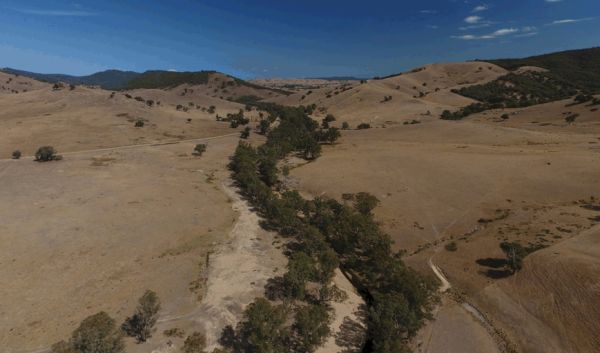
Watershed Restoration in the Pacific North West - James Capurso (Fisheries Biologist, US Department of Agriculture Forest Service, USA)
4th December 2018
Jim talked us through his department's approach to restoration of watersheds:
Passive recovery of watersheds cannot be relied on for improvements in our life time; active restoration is required
- Active restoration is applied at fine scales to rapidly speed up recovery, through actions such as: fish passage, road decommissioning, large wood augmentation, stream modification, beaver reintroduction and riparian vegetation planting
- The strategy is to focus on one watershed at a time and move on when it is complete
- Restorations aim to increase the resilience of the watershed to natural disturbances after works are finished.
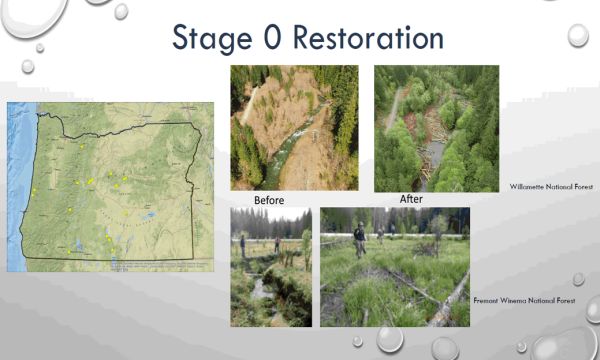
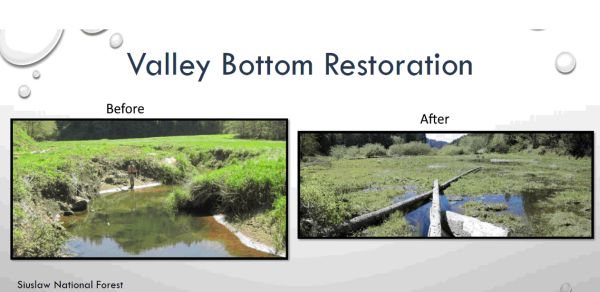
Decoupling the impacts on fisheries in the Lower Mekong Basin -Ian Cowx (University of Hull)
7 December 2018
Ian provided a masterclass on the challenges and future of inland fish in the Lower Mekong Basin.
Inland fish are a critical food resource for the Mekong Basin
- There are competing demands for water as both a resource (hydropower, biodiversity, potable supply) and as a livelihood (food security, employment, social values)
- Dams for hydropower are a significant threat mostly due to altered flows and restricted fish migration. A modelled worst-case scenario estimates a ~50% decline in fish yield in the Cambodian floodplain and Vietnamese delta due to 11 dams.
- Many solutions exist to reduce the pressures on inland fish, ranging from shifting diets to alternative protein sources, other energy sources to hydropower (solar), increasing connectivity for fish across instream barriers and shifting livelihoods of fishing communities to other industries.
- Very challenging times along the Mekong.
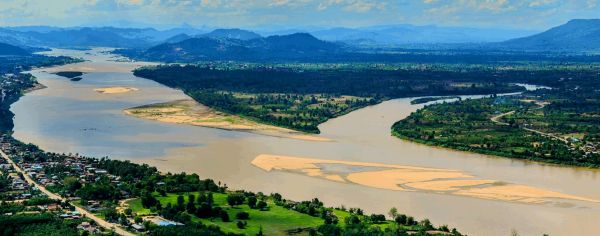
Lauren Johnson: Continuing the recovery of the Barred Galaxias - Learning by doing
26 October 2018
The Barred Galaxias Galaxias fuscus, is a small, non-migratory fish species with a limited distribution, and threatened in Victoria and nationally. Its main threats are predation by trout, drought, and loss through fires and isolation. Conservation actions have been implemented for 22 years including annual population monitoring, installing instream barriers for protection from predation, trout removal, fish translocations, captive maintenance after the 2009 fires, and a breeding program. Recent work assessed the effectiveness of the trout control strategy including factors that influence trout incursions and options for improvement. This found there was a difference in the effectiveness of barrier types in keeping out trout; natural barriers were the most effective, and logs and weirs were able to keep trout out but not completely. Distance from towns was found to be an important factor, with the likelihood of trout being present above a barrier reducing with each km from a town. The current trout control method was found to be effective, with regular surveys and early trout removal after detection important. Many of the learnings from this long-term conservation effort can be transferred to management of other threatened galaxiid species. Contact Lauren Johnson for more information.

Brad Farmilio: Quantifying effectiveness of weed control in threatened Victorian grasslands
26 October 2018
Native grasslands have long been important ecologically (high flora diversity on a small-scale, and habitat for fauna) and culturally (providing food sources such as starch via tubers and protein via game e.g. kangaroos). Our grasslands have suffered a substantial decline, with <2% remaining in Vic. They are susceptible to weeds, which out- compete native plants, change fauna habitat and alter disturbance regimes. Weed management options are diverse and include herbicides, scalping, selective grazing, fire, hand pulling, vinegar and biological controls. Surprisingly, the impact and effectiveness of most weed control actions aren't monitored, with area treated often the only type of reporting. This project determined how effective the commonly applied approach of weed control (using herbicides) was for grassland restoration. Flora surveys were conducted and annual spot spraying of herbicide (Glyphosate) targeted exotic perennial grasses. Monitoring began in 2014, with 40 sites (roadsides and rail reserves) surveyed, and then combinations of treated and untreated (control) sites monitored in subsequent years. There were reductions in weed cover when sites were treated with herbicides, however weeds were very difficult to eliminate and once treatment ceased, weed cover increased. In terms of native species richness, treated sites did not accumulate native species like the untreated sites, indicating the effects of three years of herbicides can reduce native plant richness. Brad emphasised the importance of having control sites to assist in interpretation of results, and highlighted how this work was one of the first to monitor the effectiveness of weed control in native grasslands. The results indicate that annual herbicide application should not be considered a universal remedy, and that there may be negative impacts associated with herbicide accumulation on native species richness. Annual spot spraying can reduce the threat of weeds, but asset response is delicate, and further investigation is required on how to eliminate weeds. Contact Brad Farmilo for more information.

Jason Alexander: Talking to Deakin's ghost about water governance
26 October 2018
There have been significant changes in water resource policy and management since the time of Alfred Deakin. Deakin believed that the state needed to own and control water resources and limit vested interest influence in water management. Today, the once State-owned resource is largely effectively privatised through tradeable water rights. With average rainfall not truly reflecting a system where extremes of wet and dry are common, the social, political and environmental challenges in allocating water add to the management complexity. Historically, water policy reforms have followed drought events and are deeply divisive as they alter power relations and change access to resources. As we transit from a past of economic-centric water policy (focused on irrigation) to hydro-sustainability (which considers social and environmental water values), Jason emphasised the importance of engaging with the community, adaptive governance to manage climate change risks and strong reform foundations to ensure the responsibilities of agencies involved in water management are clear. Contact Jason Alexander for more information.

